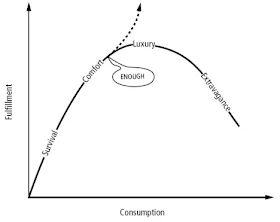 |
| Must...turn...TV...off...and...get...it...out...of...house. |
For much of our time together Linda and I have not had a TV, but we have had one for the past several years. For most of that time it did not get used much. It wasn't because we didn't like TV, but because we liked it too much. We knew to be wary of its mesmerizing, time-sucking qualities.
Since we have never had cable, we usually only had one fuzzy channel, our national broadcaster, the CBC. Our viewing time was minimal.
Then I got the bright idea of hooking up the TV to the cable outlet just to see what would happen. Big mistake - about 10
free channels came in clearly, and they immediately began their near-irresistible screen seduction. We were drawn in and soon the remote was never far away.
As viewing time increased, so did our exposure to advertising, and programming that is advertising thinly disguised as 'entertainment'. HGTV, MTV, and programs like
My Super Sweet 16, where clueless kids born into wealth throw lavish, over the top parties for themselves, were perversely hypnotic.
Television pushes 'the good life' on passive viewers 24 hours a day. I didn't like how quickly I became one of those slack-jawed vessels. It was scary looking in to the dark side, a skewed view of the world where everyone wants more everything as soon as possible.
Eventually we started to feel tainted by what we were seeing on our mass-indoctrination device. Advertising and excessive lifestyles - and damn the consequences - plus all the negative news, were like dystopic hallucinations.
We had to ask, "Is owning a television adding quality to our lives?" It did not take long to arrive at our answer - "No."
We changed our minds several times, but when it came time to retire our microwave recently, we garnered our bravery and gave away our TV at the same time. We are feeling much better now.
The time that has been freed up will be spent in activities that
do add quality to our lives - listening to music, reading, cooking, napping, getting outside, singing and playing guitar, enjoying nature, gardening, and participating in real life with our friends, family and community.
"So,
please, oh please,
we beg, we pray,
go throw your TV set away,
and in
its place you can install,
a lovely bookcase on the wall.
~Roald Dahl

















